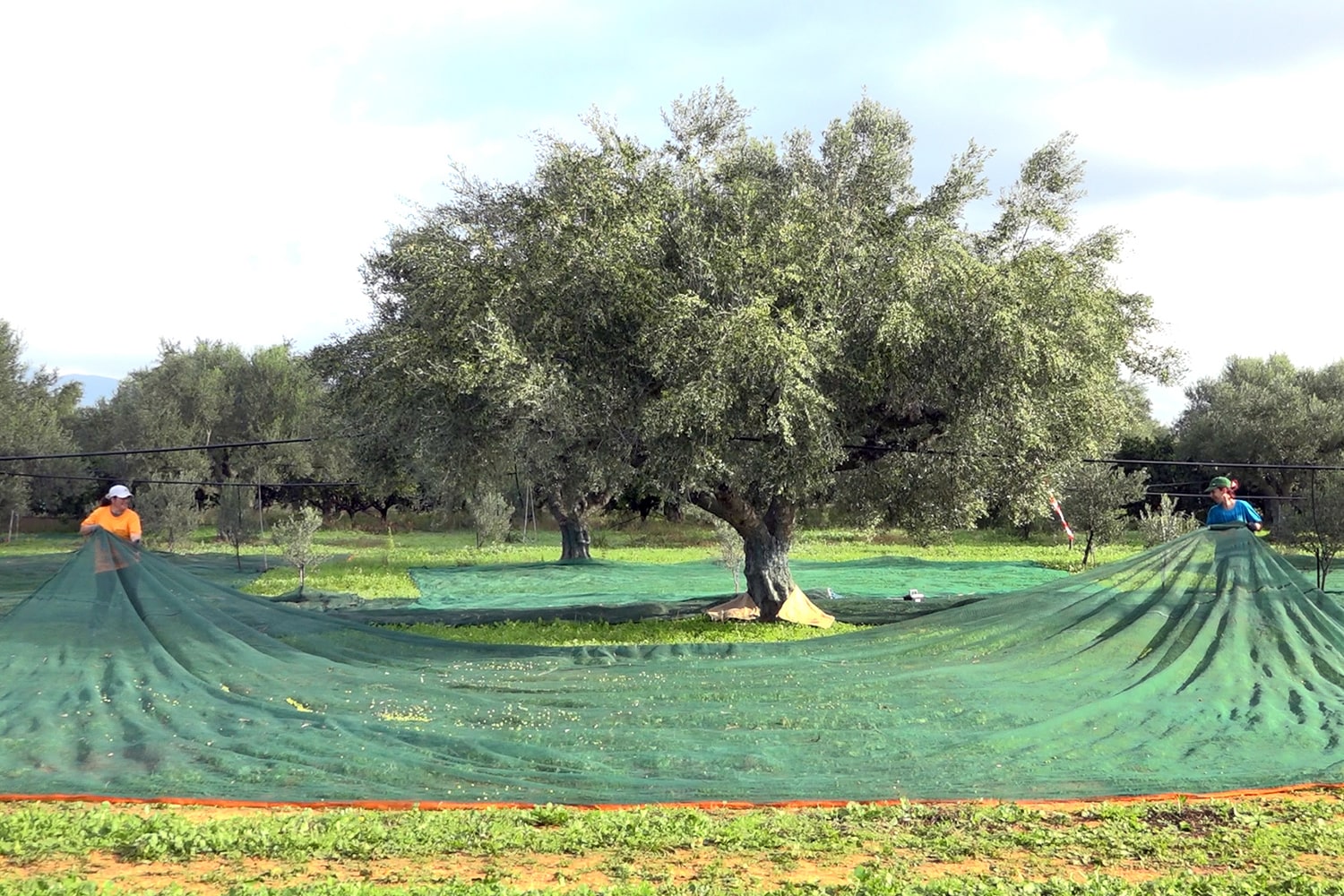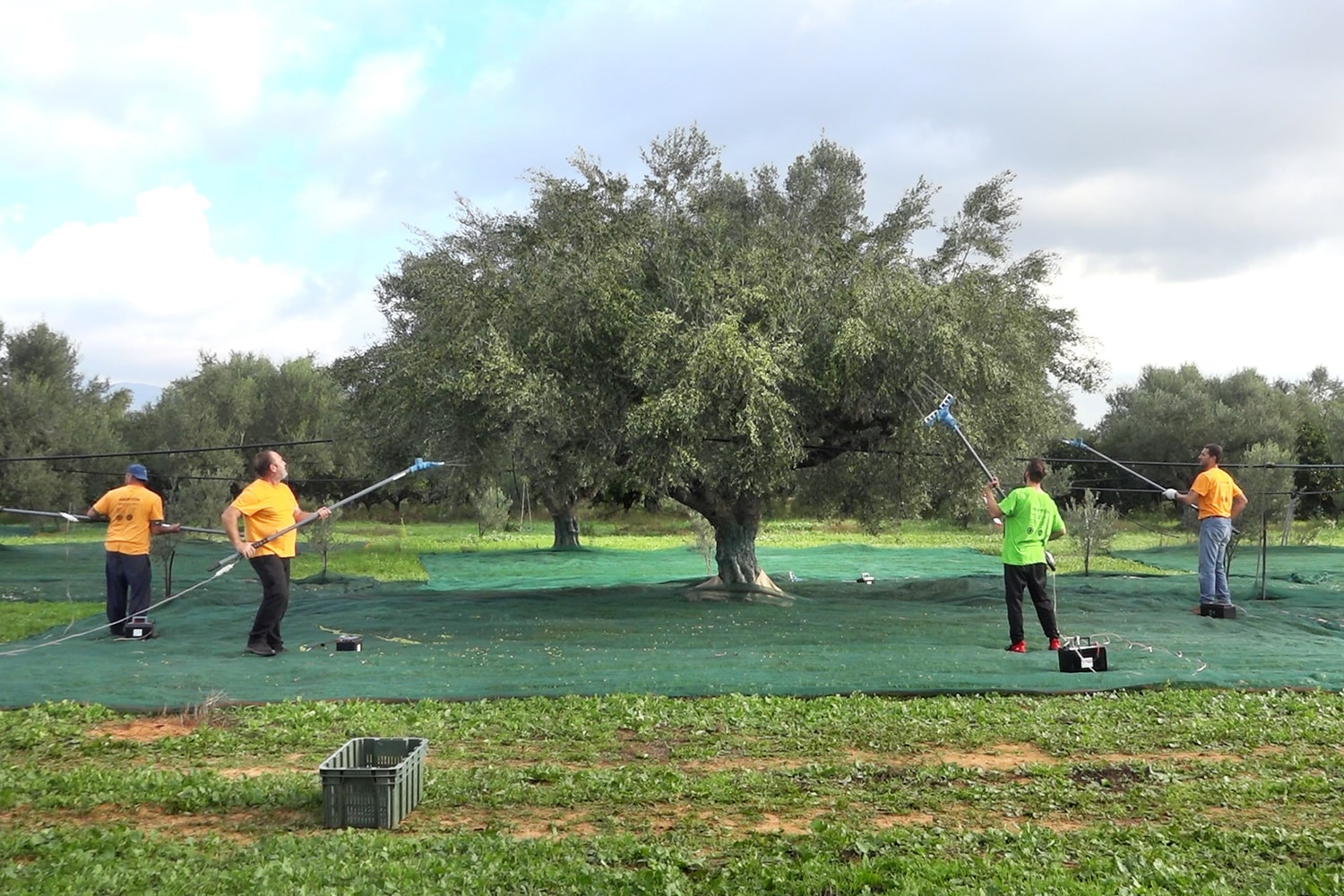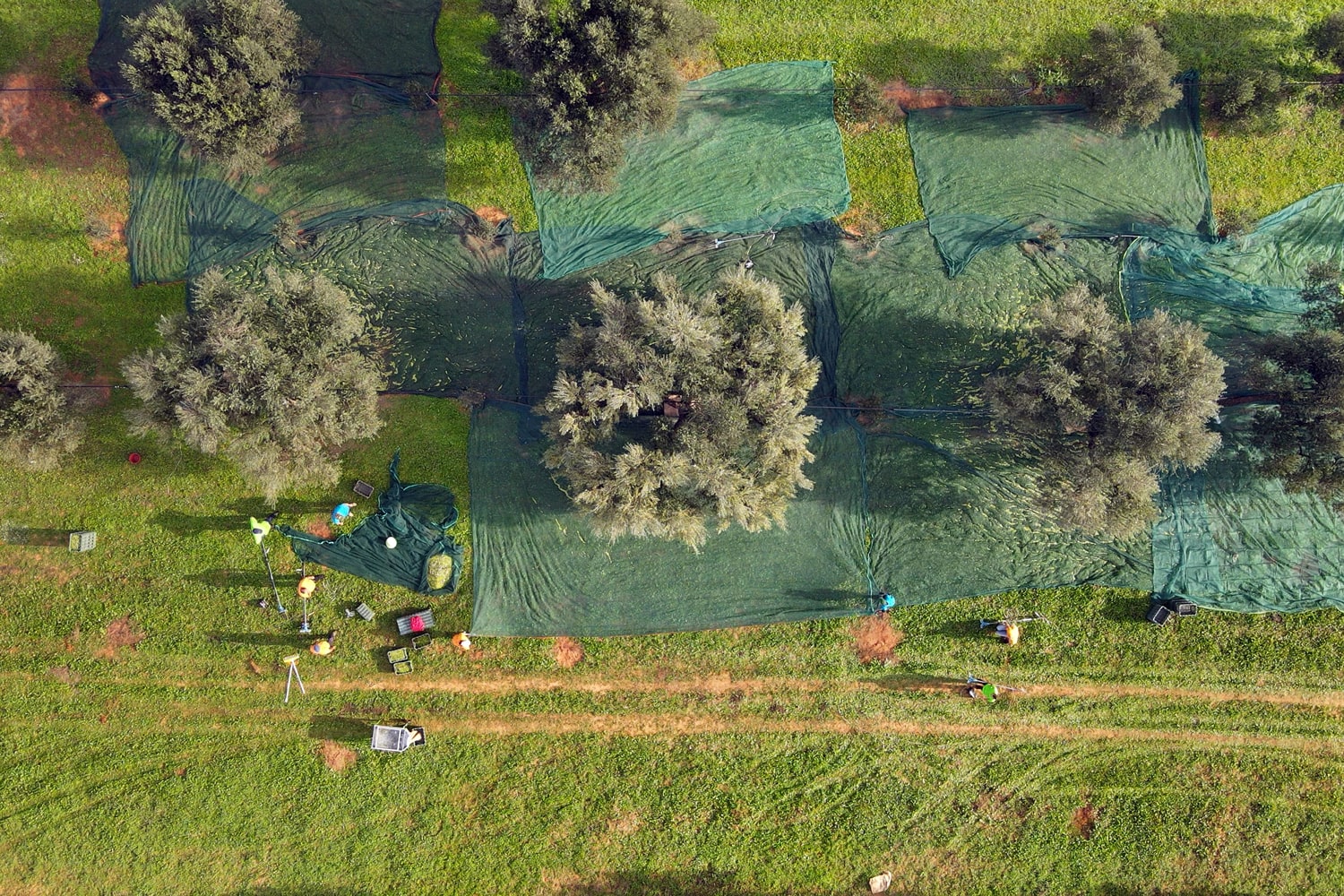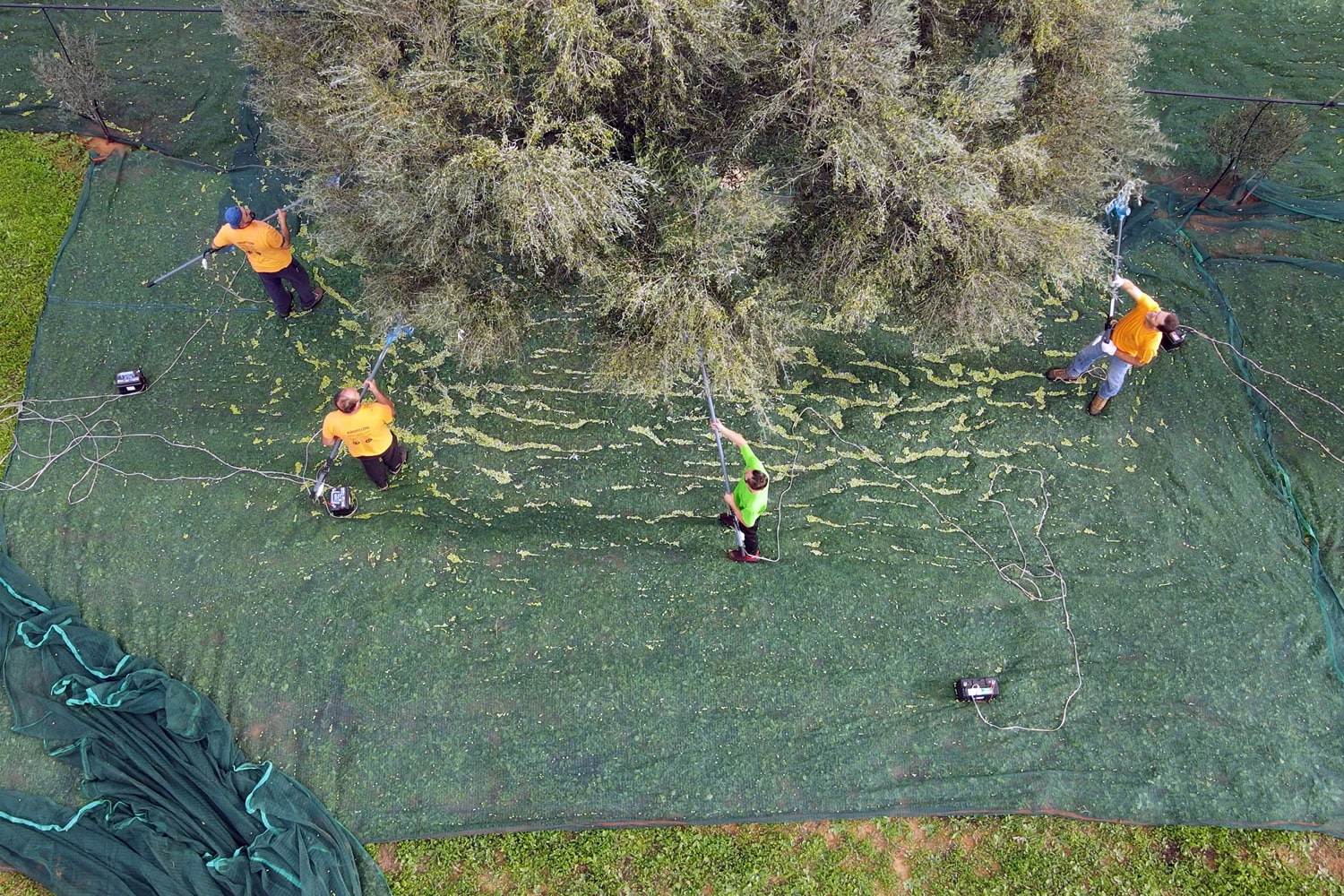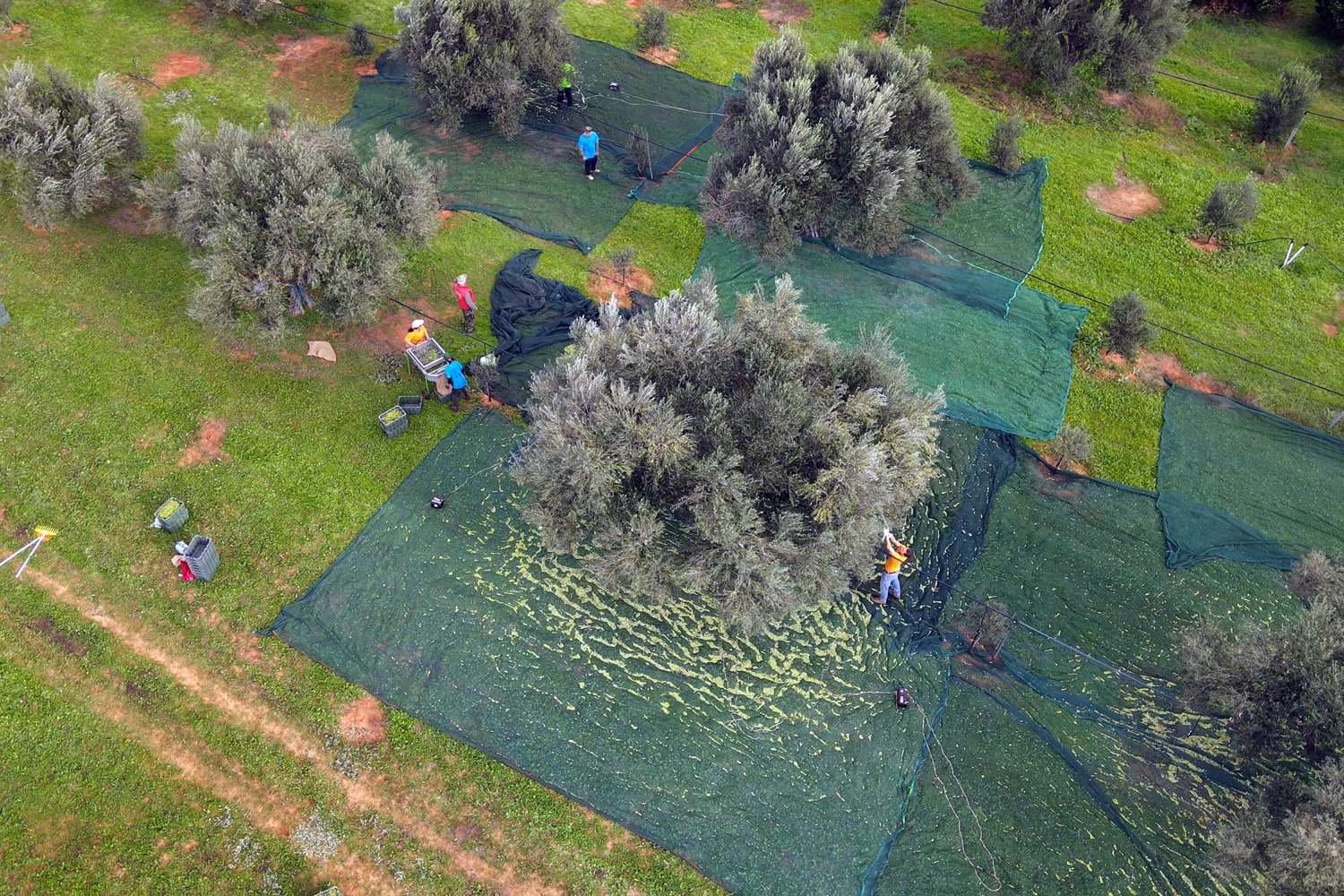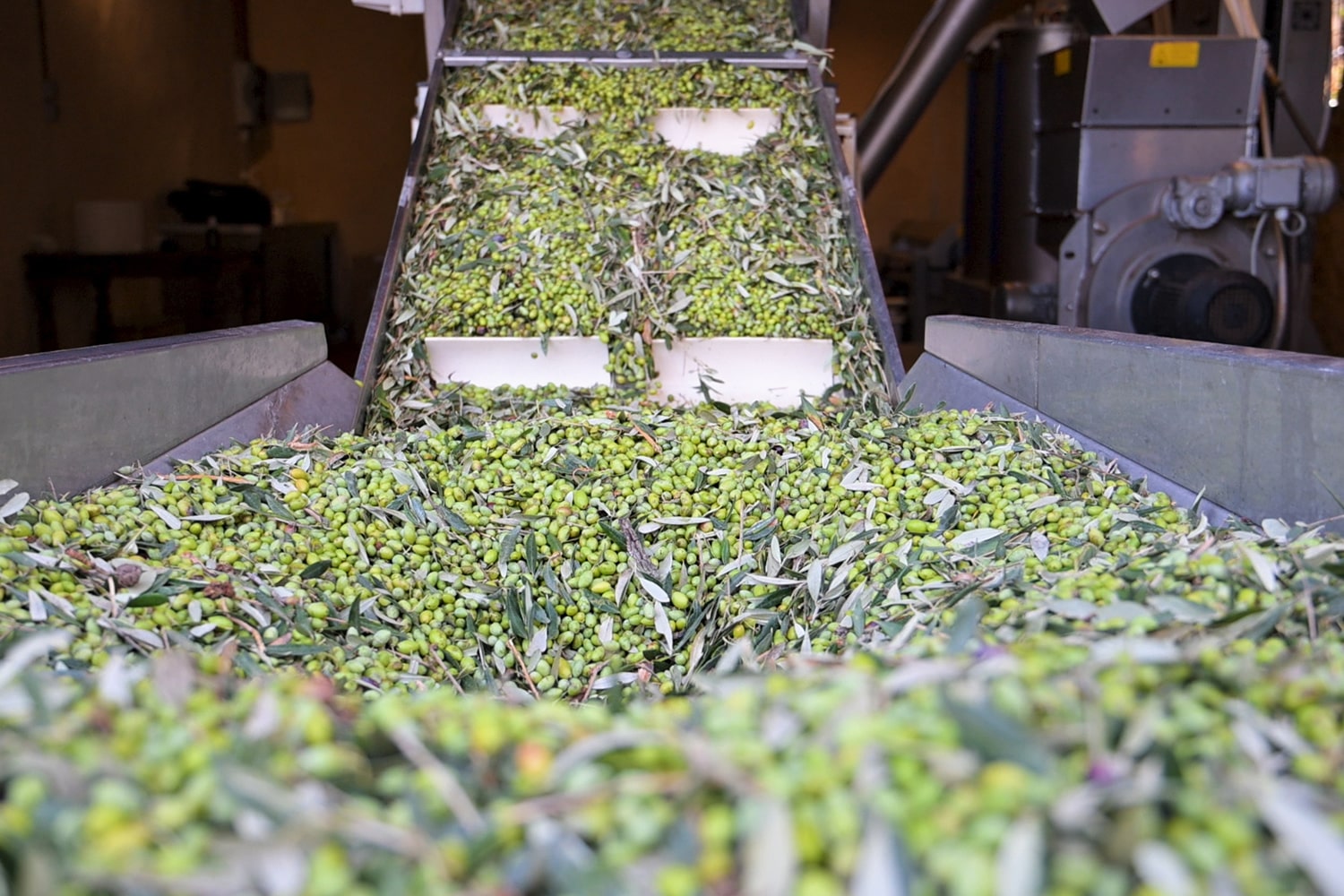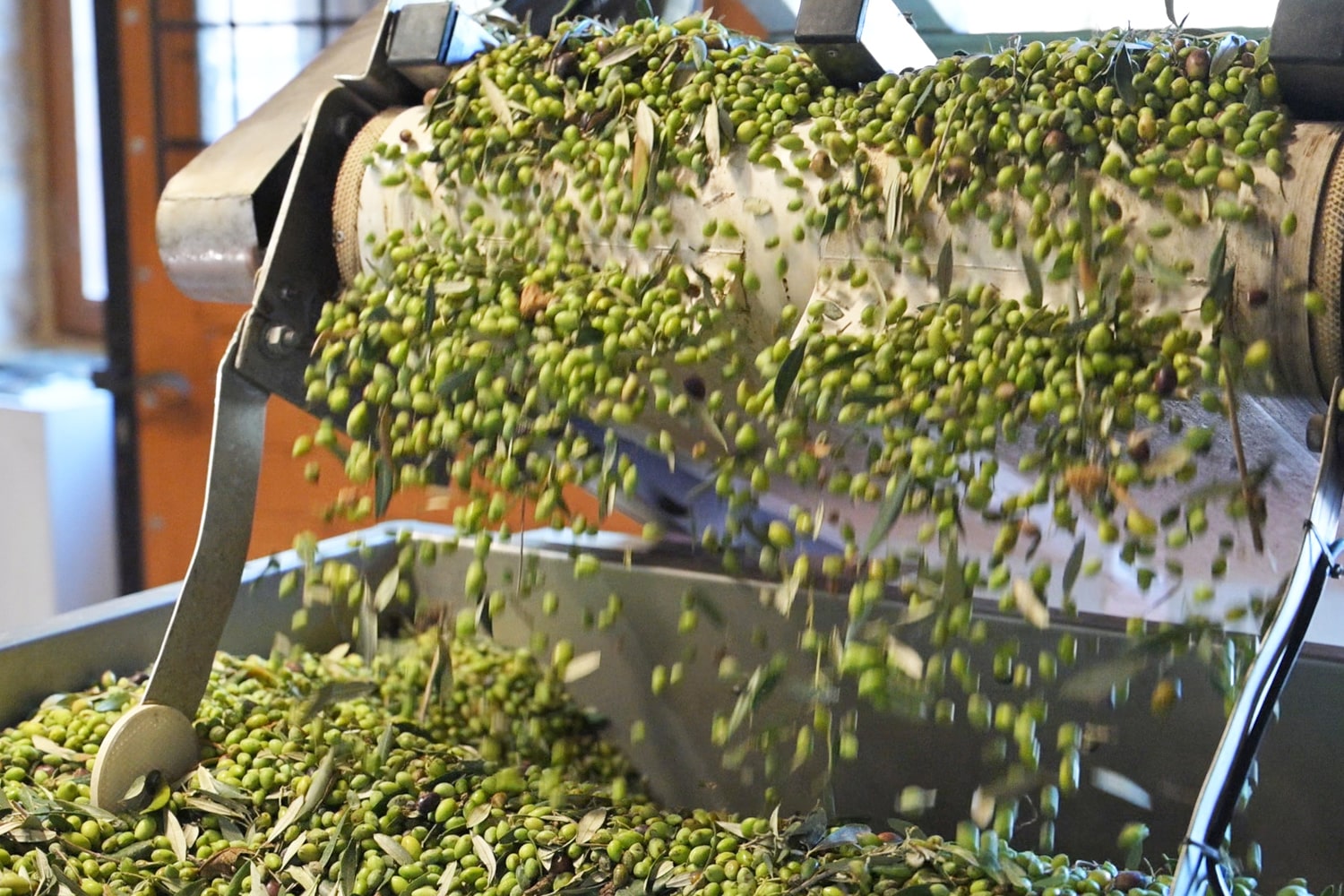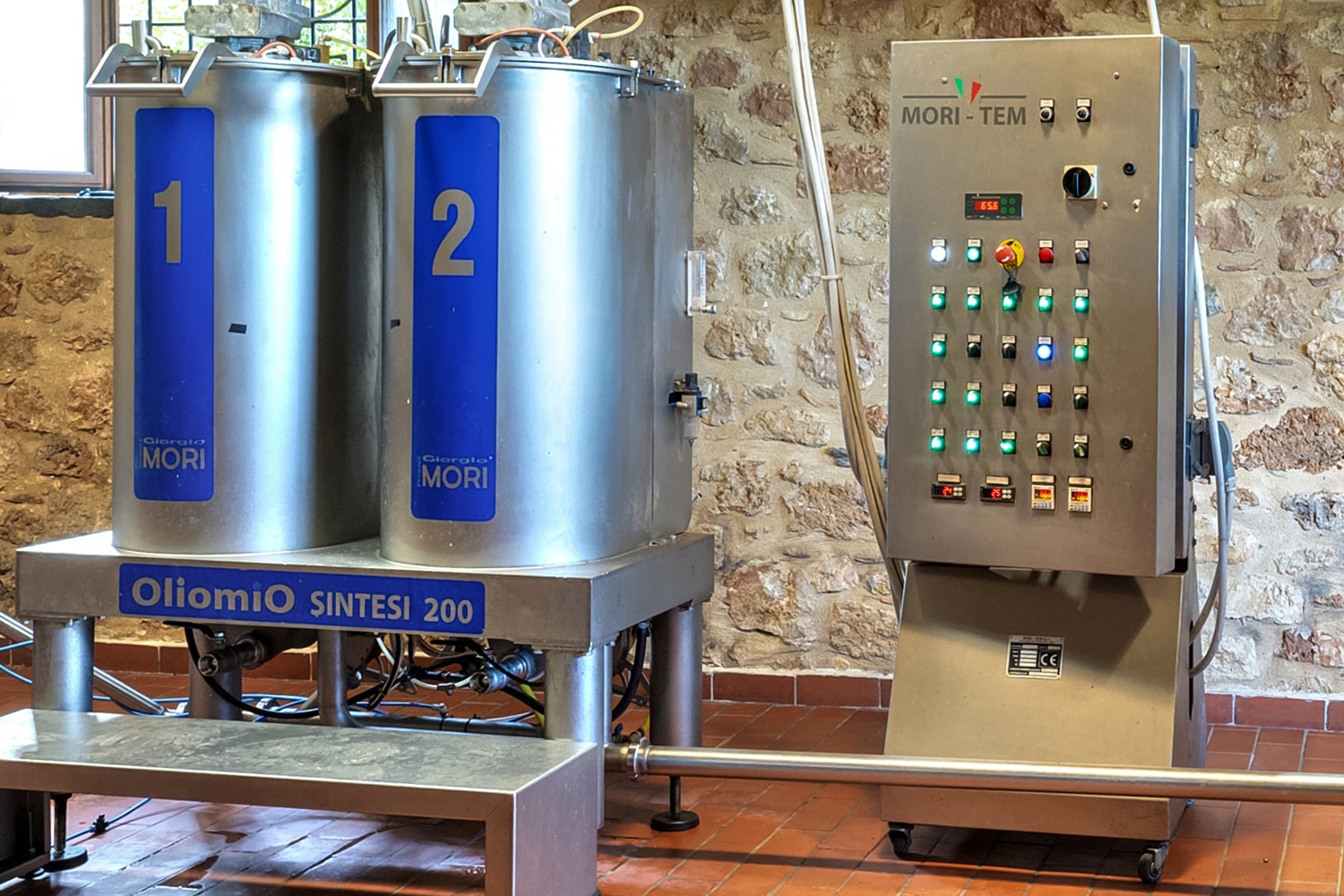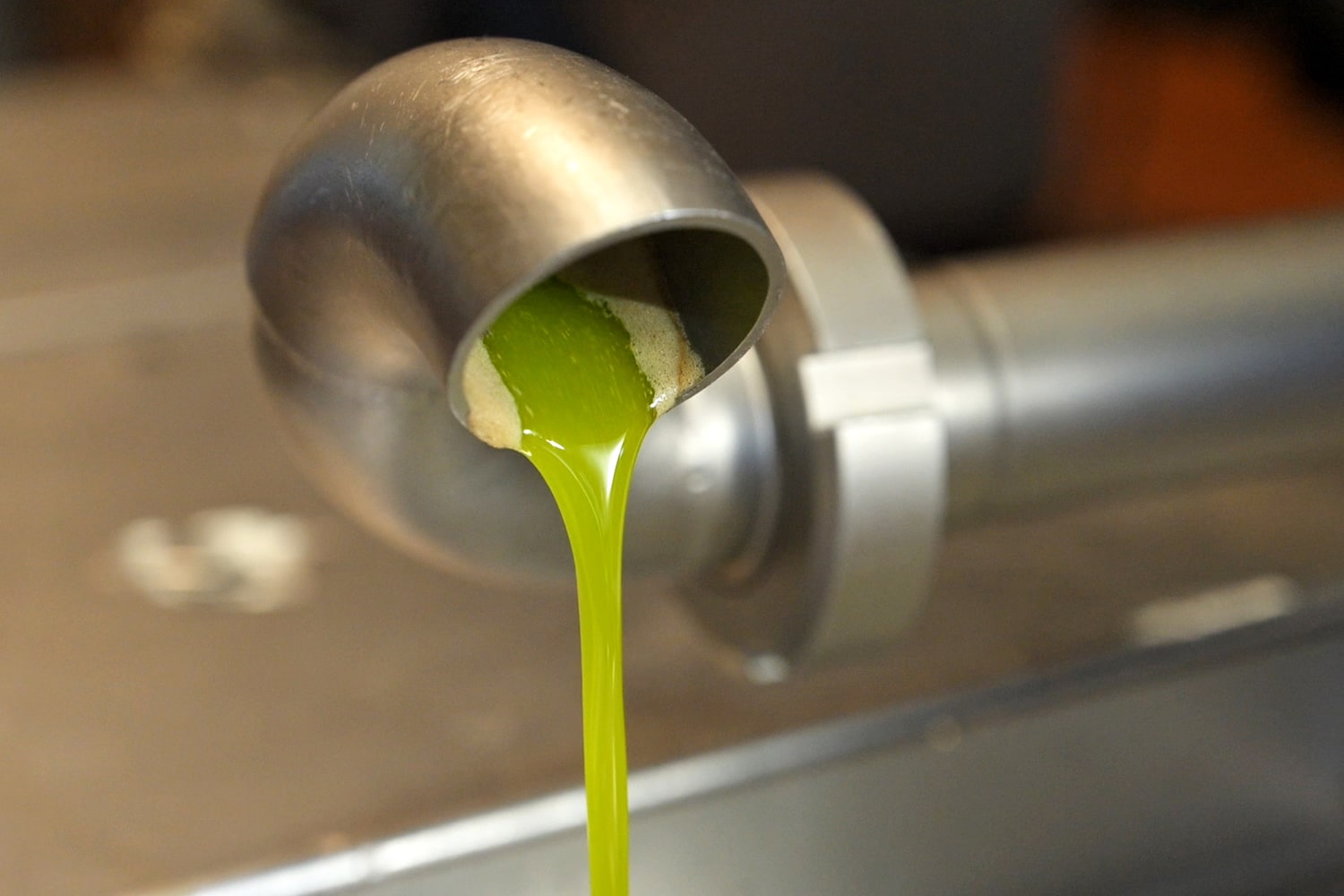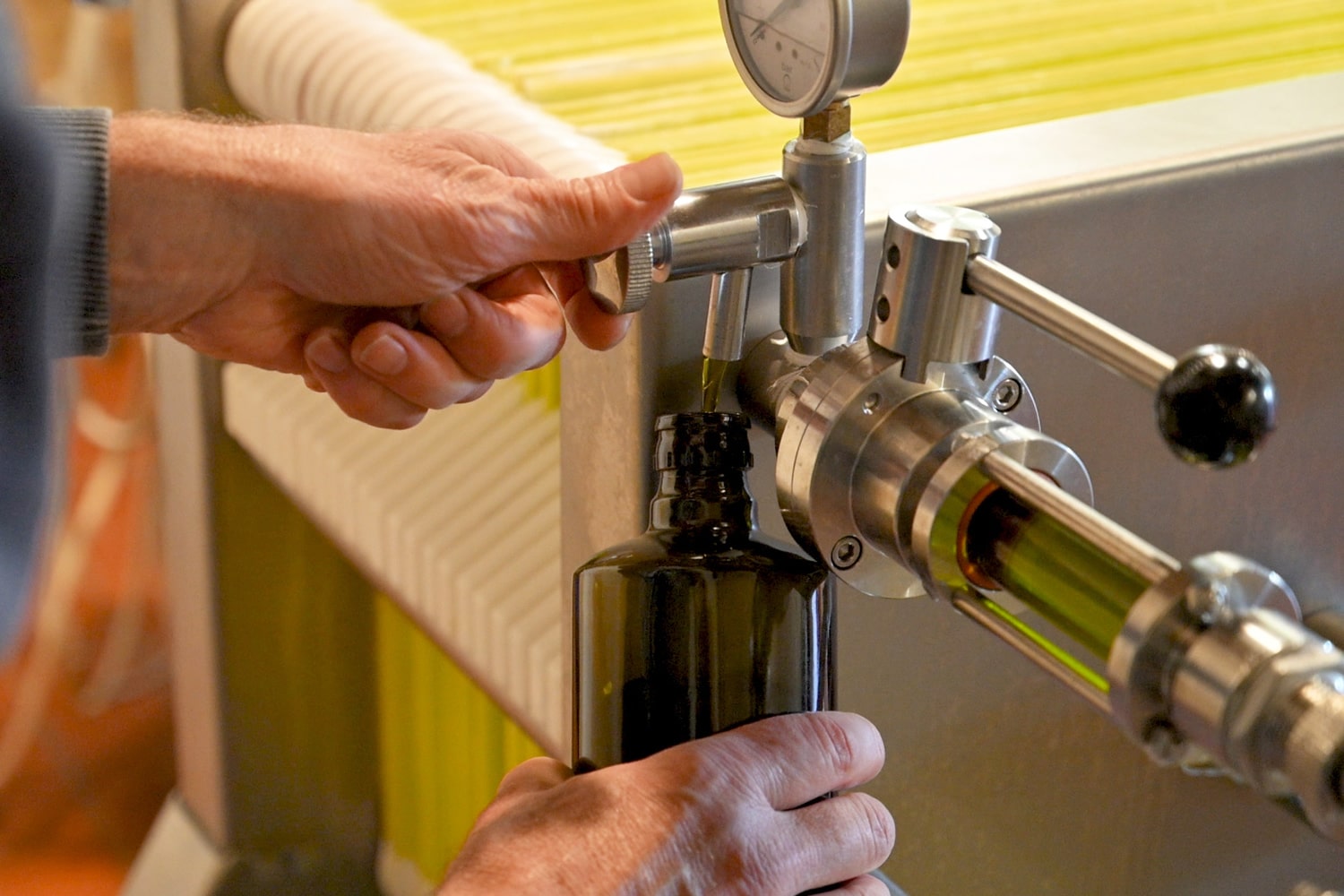Year-round care for high quality
From December through October, between the annual harvests, we carry out all essential cultivation practices to ensure that our olive trees deliver the highest possible quality.
Our farming methods are aligned with nutritional excellence. We use minimal, carefully managed irrigation, which is increasingly necessary in recent years due to prolonged droughts. Combined with our long-standing experience and attention to detail, these practices bring us, each October, to the beginning of a successful harvest season.
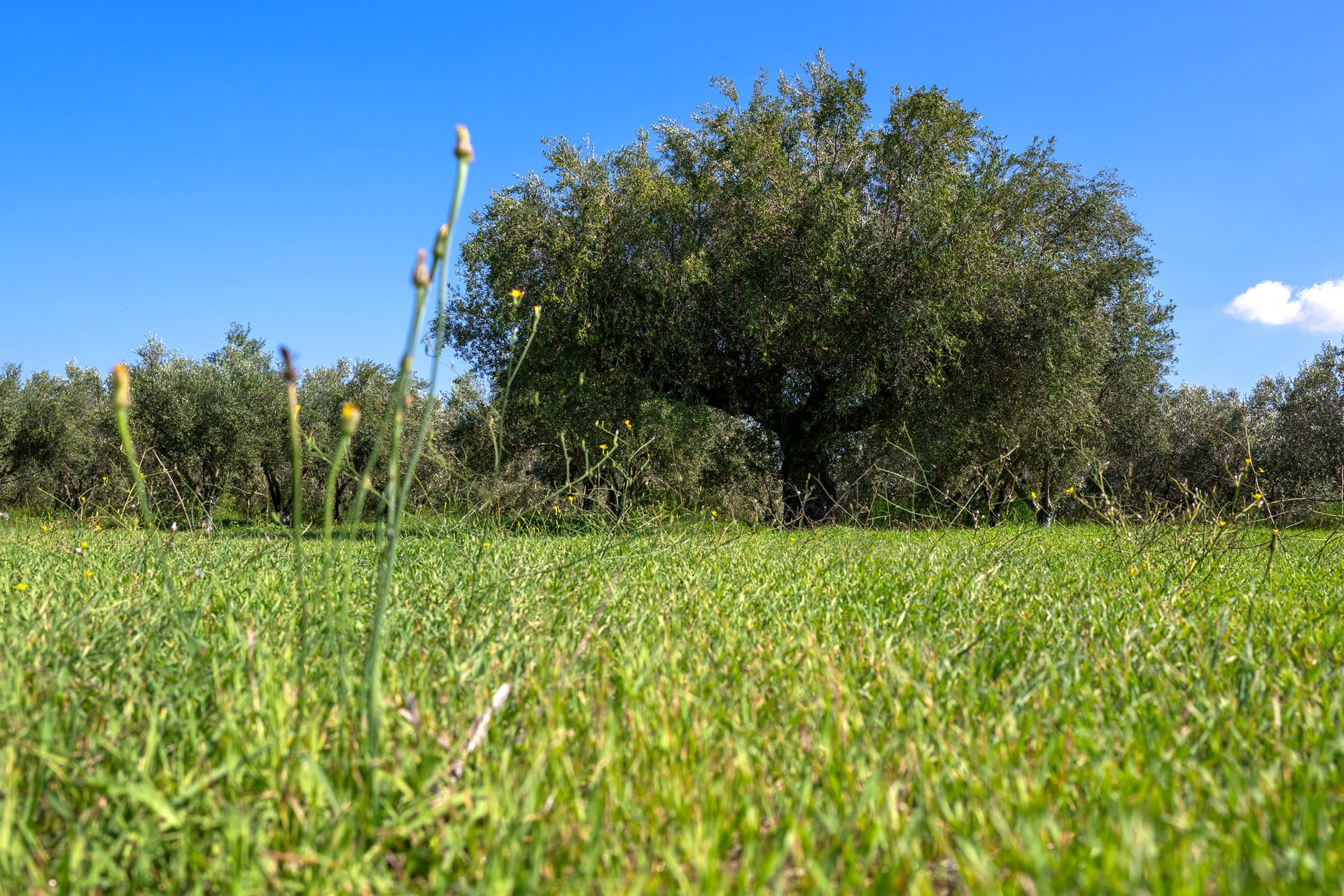
Harvesting
We choose early harvest, starting in the second half of October, when the Koroneiki olive reaches its peak nutritional value — precisely what we seek in our oil. At this stage, the fruit is still unripe or just beginning to mature, remaining healthy and free from disease or fungal threats that typically arise during late ripening and can compromise quality. The resulting olive oil boasts a stunning emerald-green hue, an intense fruity aroma and taste, and — thanks to its high phenolic content — a pleasantly balanced bitterness and peppery finish. Harvesting takes place on cooler days to protect the olives’ integrity. We avoid branch cutting and the use of combustion-powered machinery to eliminate the risk of exhaust exposure. The fruit is collected in clean, ventilated plastic crates and swiftly transported to the mill to preserve freshness and quality.
Olive Milling
The milling process begins immediately after the olives arrive at the mill — typically just 3–4 hours after harvesting begins. Every step of this process is crucial in shaping the excellence of the final product. Daily, meticulous cleaning of every part of the equipment is essential, ensuring no contamination and preserving purity. In combination with precisely controlled parameters and consistent attention to detail, these practices guarantee that the resulting oil meets the highest standards. Thanks to this commitment, ASOPITON is officially certified and categorized as a Premium Extra Virgin Olive Oil :
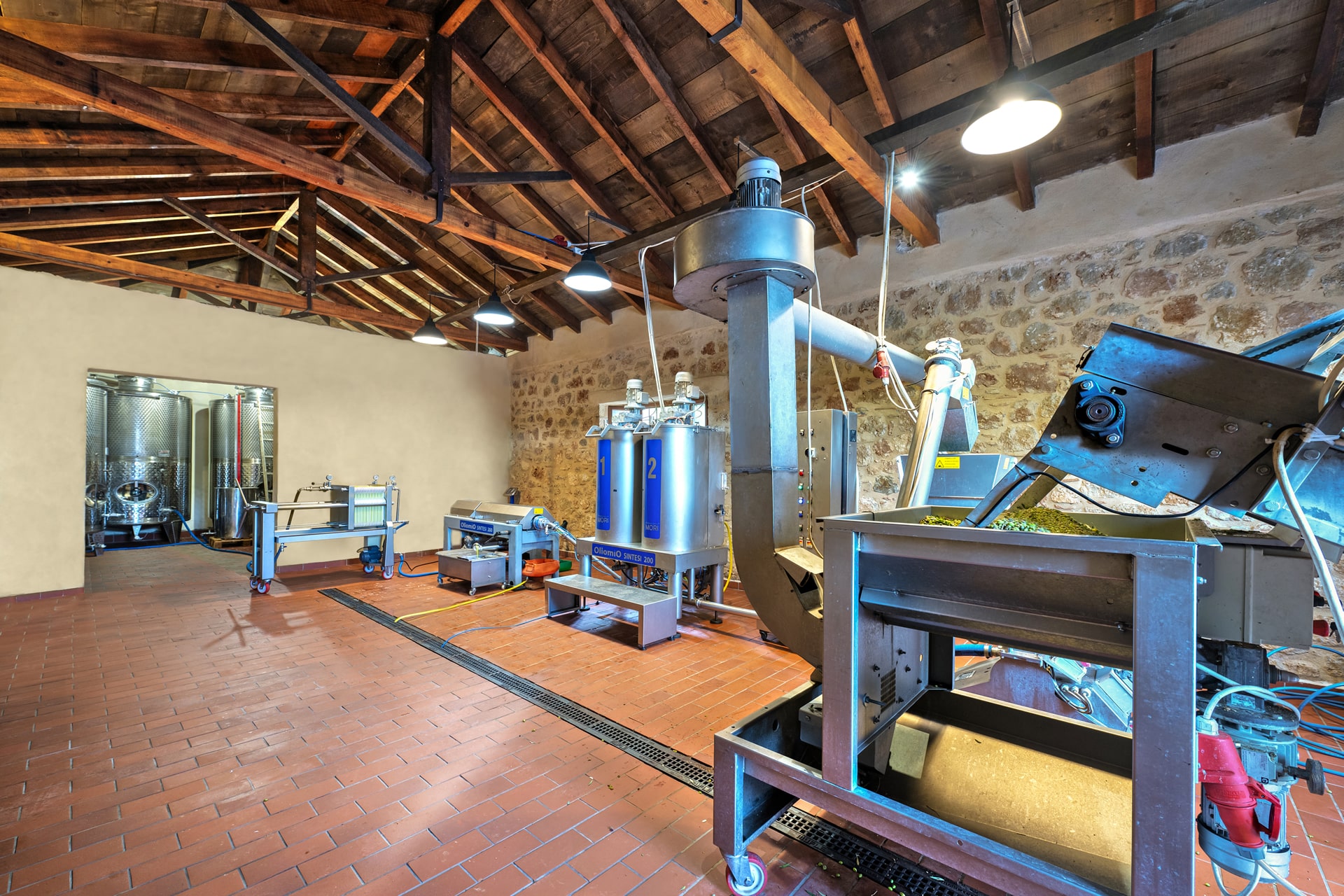
- Use of fresh, non-recycled water, which is frequently renewed during the initial washing phase of the olives.
- Low processing temperatures consistently maintained between 19°C and 24°C to preserve the oil’s delicate aromas and nutrients.
- Extremely short malaxation times of only 10–15 minutes, compared to the industry average of 90–120 minutes, ensuring minimal oxidation.
- Use of vertical malaxers to further reduce oxidation and enhance quality.
- Two-phase centrifugation (decanter) at a gentle capacity of 500 kg/hour for a softer separation process.
- Immediate dual filtration directly after separation — without the use of a final vertical separator — giving the freshly extracted ASOPITON its emerald hue, clarity, exceptional flavor, minimal sediment presence, and the full expression of its premium organoleptic profile.
Storage
Immediately after extraction, ASOPITON is stored in stainless steel tanks under a nitrogen atmosphere, ensuring optimal preservation. The absence of oxygen inside the tanks prevents oxidation, safeguarding the oil’s freshness, flavor, and nutritional integrity over time. This controlled environment is essential to maintain the premium quality that defines ASOPITON.
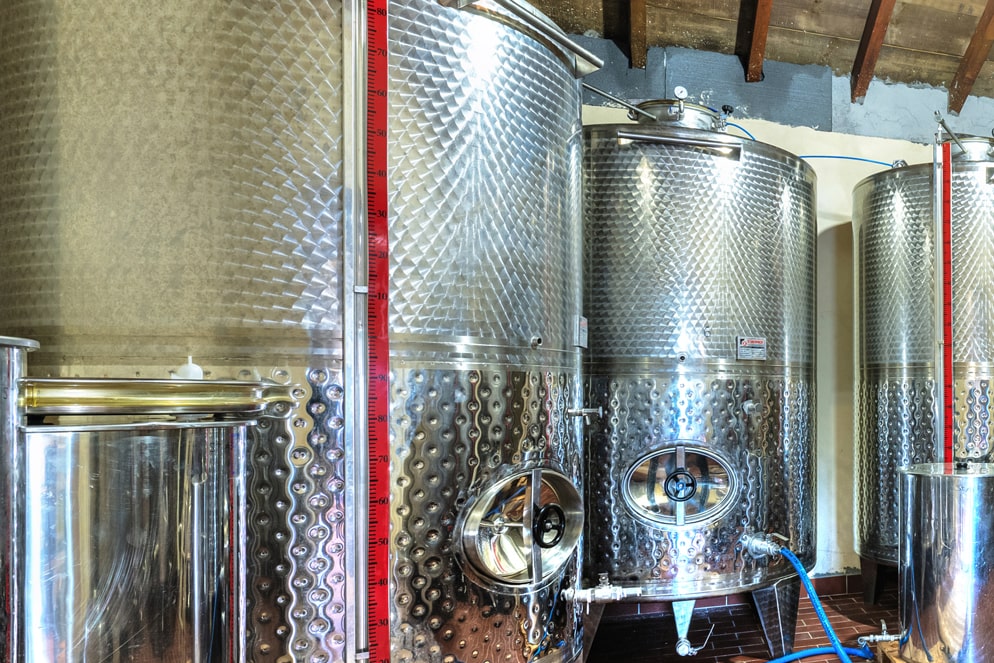
Choosing ASOPITON means savoring the culmination of dedication, precision, and care at every stage of production.
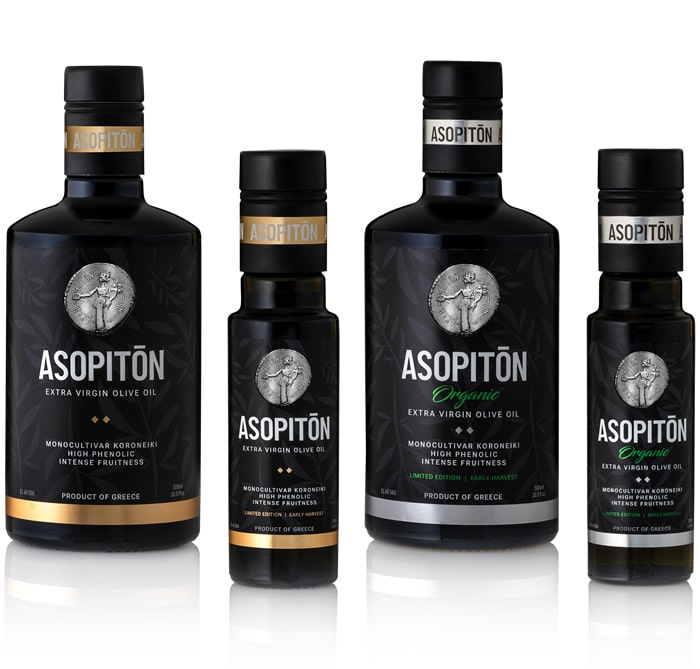
With unwavering dedication to nutritional excellence and rich flavor, we will continue to honor your trust and appreciation for ASOPITON.
The Journey Through the Mill


